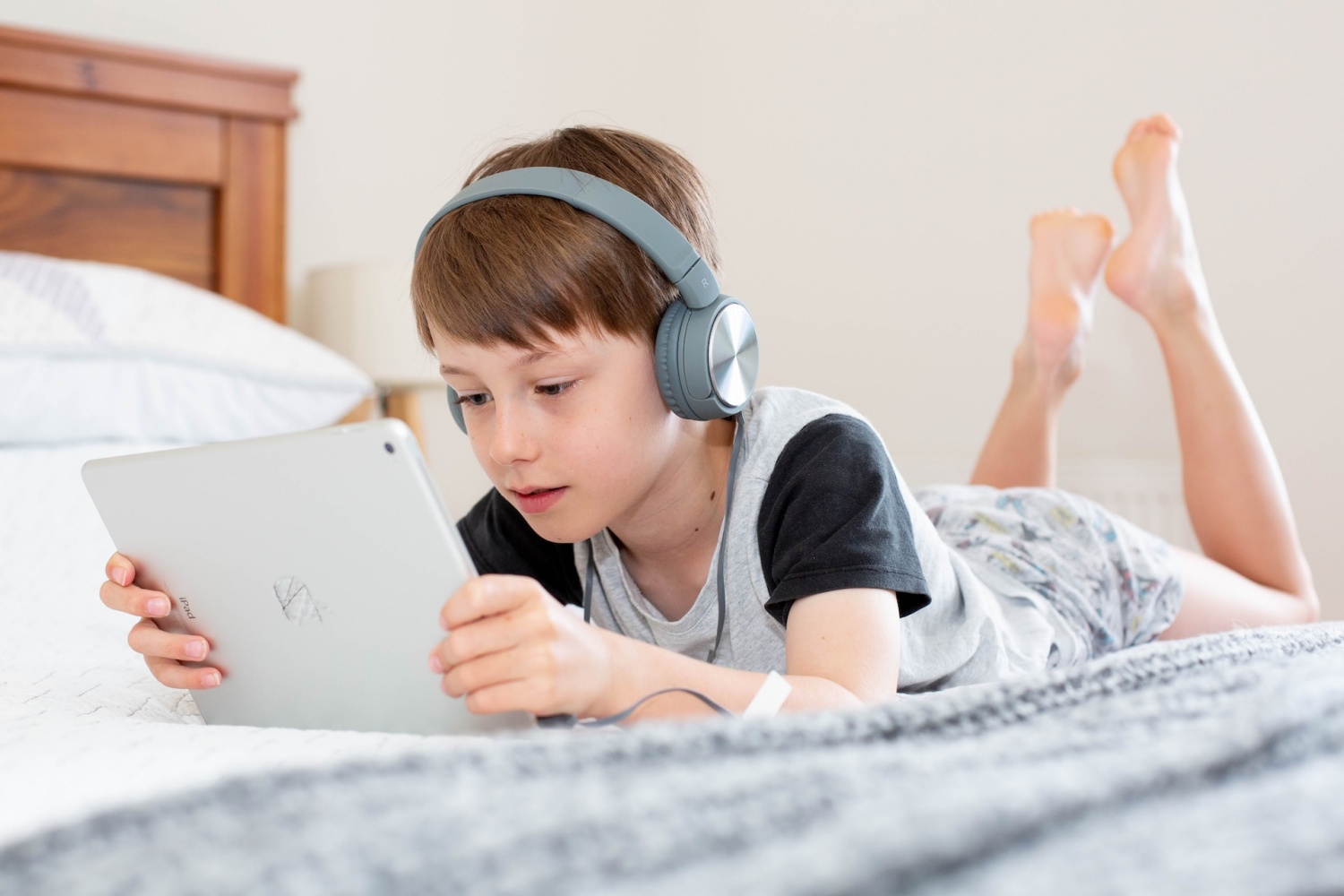Experts
Experts Share Tips on How to Balance Kids' Screen Time in This Digital Age

(Photo : Emily Wade / Unsplash)
In today's tech-dominated society, children are growing up immersed in screens from a very young age. Babies as young as six months old spend over an hour daily in front of screens, and the average tween receives their first phone before turning 12, according to research data. This rapid integration of technology into children's lives has raised significant concerns about its impact on their mental and physical health.
Recent comments by the U.S. Surgeon General, advocating for warning labels on social media platforms to inform parents about the mental health risks associated with these apps, have highlighted the urgency of this issue. The decision on when and how to introduce children to technology and establish appropriate boundaries has now become a crucial parenting challenge, according to Vox.
Research on the effects of smartphones on children has produced mixed findings, adding to the complexity for parents. Some studies indicate that excessive screen time can lead to developmental delays, communication issues, and behavioral problems in young children. For instance, one study found that one-year-olds exposed to over four hours of screen time daily exhibited developmental delays by ages two and four. Even as little as one hour on mobile devices has been linked to behavioral issues among first graders in Japan.
Despite these concerning findings, the impact of screen time is not entirely negative. The American Psychological Association's May 2023 advisory reviewed existing evidence and concluded that social media use is neither inherently beneficial nor harmful to young people. Additionally, technology can help adolescents form social connections and explore their identities, offering a potential silver lining.
In light of this problem, various experts have shared their recommendations via Vox for parents struggling to regulate their children's exposure to screens.
When deciding whether to give a child a phone, parents are advised to critically assess their motivations, according to experts. Emily Cherkin, founder of the Screentime Consultant, advises against using phones as a means to alleviate parental anxiety, suggesting alternative communication tools like flip phones.
Linda Charmaraman, a senior research scientist and founder and director of the Youth, Media, and Wellbeing Research Lab at Wellesley Centers for Women at Wellesley College, recommends listening to children's reasons for wanting a phone, which often includes peer pressure and social connectivity.
Family values play a crucial role in determining screen time boundaries. Cherkin suggests aligning screen time rules with core family values such as respectfulness, responsibility, and honesty. For example, a no-phone policy at the dinner table can promote togetherness and communication.
Clear, consistent rules are essential when children receive their first phone. Sheryl Ziegler, a licensed clinical child psychologist, notes adjusting privacy settings and establishing a smartphone contract. The contract should outline rules on privacy, screen time limits, and open communication about online activities.
Monitoring screen time quality is as important as the duration. The American Academy of Pediatrics recommends no screen time for children under two, except for video chatting, and limited screen time for older children. Parents should also ensure certain rooms and times of day remain phone-free, such as bedrooms overnight and during homework.
Ongoing conversations about internet safety and responsible online behavior are crucial. Devorah Heitner, author of "Growing Up in Public," suggests parents familiarize themselves with the apps and platforms their children use, facilitating discussions on online experiences and potential dangers.
Recognizing signs of excessive smartphone use is also crucial. If children become irritable or struggle to find activities outside screen time, it may indicate a problem. Instead of outright bans, parents can encourage breaks from specific apps and promote healthier digital habits.
Finally, parents must model healthy phone boundaries themselves. Demonstrating limited screen use during family time sets a positive example for the children.








Join the Conversation